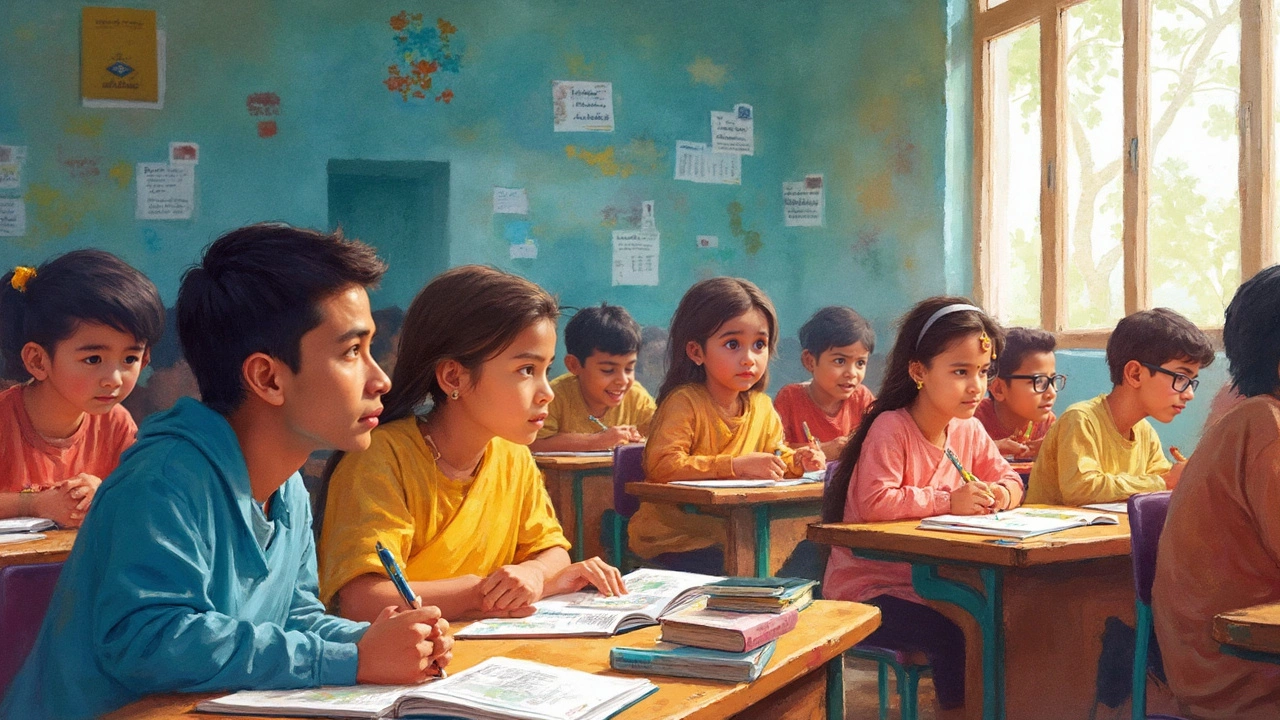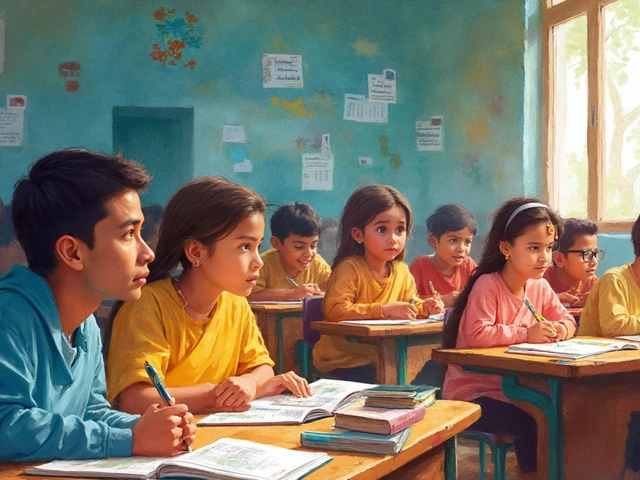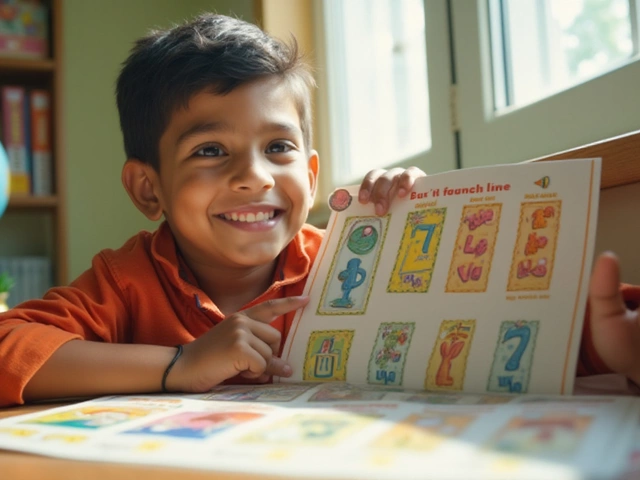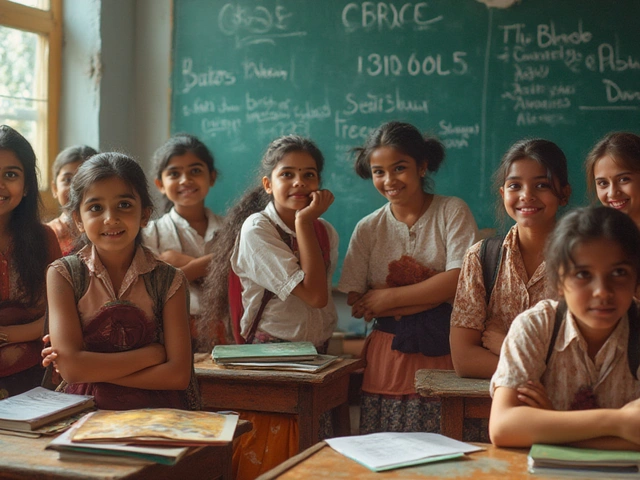
Which Board Has the Highest Value in India: CBSE on Top?
Welcome to the wild world of Indian education boards, where the Central Board of Secondary Education, or CBSE, often takes the spotlight. Ever wondered why it's such a big deal? Imagine a board that offers a syllabus that's not only widely recognized across India but also overseas. CBSE schools are pretty much everywhere, making it super accessible for families moving around the country. Plus, the curriculum is known for being student-friendly, focusing on understanding rather than rote memorization.
But that's not all. CBSE's connection with national entrance exams like the JEE and NEET makes it extra appealing for students eyeing careers in engineering or medicine. Wondering how it stacks up against other boards like ICSE or state boards? Stay tuned as we break down what CBSE offers, why it might just be the right fit for you, and how to make sense of all these options if educational choices have been keeping you up at night.
- Understanding CBSE: The Basics
- Why CBSE Stands Out
- Comparisons with Other Indian Boards
- CBSE's Syllabus and Opportunities
- Tips for Choosing the Right Board
Understanding CBSE: The Basics
Diving into the world of education boards in India, you'd definitely bump into the CBSE, which stands for the Central Board of Secondary Education. This board comes directly under the Union Government of India, making it one of the most prominent choices for school syllabi across the country.
CBSE isn't just about being wide-reaching; it covers both schools and exams, meaning it dictates what millions of students will study and how they'll get tested. One of the greatest things about CBSE is its structured curriculum that aims to support holistic education. Forget about just cramming information; CBSE focuses on letting students actually understand and enjoy what they're learning.
The board is known for its emphasis on science and math, often matching the standards found in national entrance tests like the JEE for engineering enthusiasts and NEET for aspiring doctors. That's part of why you'll see so many CBSE-affiliated schools all over the place—might be over 21,000—and even some internationally.
With its balance between academic rigor and the flexibility to encourage student's interests, CBSE constantly updates its syllabus to make sure students are learning relevant and up-to-date content. They adjust things like exam patterns and grading systems to keep the process fair and consistent.
For parents and students who frequently move around, CBSE's uniformity is a blessing. No matter where you go in India—or even with some overseas schools—the curriculum remains largely the same, saving students from the headache of adapting to different studies every time they switch schools.
| Feature | Details |
|---|---|
| Founded | 1962 |
| Number of Schools | Over 21,000 |
| Focus | Science, Math, Holistic Education |
| Global Reach | Schools in over 25 countries |
Why CBSE Stands Out
When you're in a room full of students and drop the acronym CBSE, it’s likely to spark recognition, if not outright admiration. So, what's the secret sauce that makes it shine in the Indian education landscape? Let's break it down.
Firstly, the CBSE syllabus aligns with national competitive exams like JEE and NEET, which are gateways to prestigious engineering and medical colleges in India. This makes it a top choice for students aspiring for these fields. The standardized approach of CBSE ensures that whether a student is in a metro city or a small town, they are learning the same material, which is a big deal for families who might have to relocate.
The board’s curriculum is often touted for emphasizing conceptual understanding over rote learning. Remember last year when the board scrapped several irrelevant topics to make learning more focused? That’s CBSE for you—constantly evolving to suit student needs.
Moreover, CBSE is recognized by top universities in India and abroad, smoothing the transition for students looking to study overseas. They're also big on holistic education, paying attention to sports and extracurricular activities, not just academics. This balanced approach builds well-rounded students prepared to tackle the world.
Finally, we can't overlook how CBSE's grading system, emphasizing a mix of exams and internal assessments, takes a bit of pressure off students while still maintaining a high standard of academic excellence.
All these factors make CBSE not just a board, but a brand associated with quality education, trusted by parents and students alike across the nation.

Comparisons with Other Indian Boards
When you're talking about the big players in Indian education, CBSE often gets mentioned alongside the Indian Certificate of Secondary Education (ICSE) and various State Boards. So, what sets them apart?
CBSE is renowned for its focus on mathematics and science, with a curriculum that's well-aligned with competitive exams like JEE and NEET. It's like having a head start if you're dreaming of becoming an engineer or doctor because the board pays special attention to practical knowledge and problem-solving skills.
ICSE, on the other hand, places a strong emphasis on English language and literature. Students often come out of the ICSE system with impressive English communication skills. If you're passionate about the humanities or languages, ICSE might just be your jam. However, CBSE’s standardized textbooks provided by NCERT are known to be widely accepted, which gives it a slight edge with uniformity and accessibility.
Now, don't discount the State Boards. Each state board tailors its curriculum to include local culture and history, which is pretty awesome if you're interested in state-specific learning. But in terms of national recognition, CBSE usually has you covered, especially since it's the board associated with a lot of central-level exams and schemes.
Looking for some numbers? Take a look at this:
| Board | Number of Schools in India | Focus Areas |
|---|---|---|
| CBSE | 20,299 | Science, Mathematics |
| ICSE | 2,341 | English, Literature |
| State Boards | Varies by State | Local Culture, State Languages |
Finally, if mobility within India or abroad is on your radar, choosing CBSE could be beneficial. Its curriculum's uniformity means students can switch schools without a hitch, a big plus for parents frequently on the move. It all boils down to what you prioritize for your learning experience.
CBSE's Syllabus and Opportunities
So, you've probably heard that the CBSE syllabus is kind of a big deal in India, right? It's not just famous; it's a beacon of consistency and clarity in the Indian education landscape. Why? Well, first up, it's structured in a way that aims to reduce rote learning — which means goodbye to mindless memorization and hello to understanding concepts that actually stick!
The CBSE curriculum gets updated regularly to keep pace with global education standards. This means students aren't just learning what was relevant ten years ago. Instead, they get a mix of foundational knowledge and contemporary insights. Subjects like science and math are taught with a problem-solving approach, making them a hit for students who think outside the box. Plus, emphasis on subjects like environmental studies and physical education shows they care about rounded development.
One more thing: if you're someone dreaming of becoming a doctor or engineer in India, CBSE has got you covered. The board's alignment with national entrance tests like JEE and NEET is a game-changer. It's no coincidence that students from CBSE schools tend to ace these exams.
A peek into the opportunities chart:
- Higher Education: Since it's widely recognized, CBSE students find it easier to get into colleges across India and even abroad.
- Entrance Exams: The syllabus closely mirrors the curriculum of key competitive exams.
- Inter-State Transfers: With a huge number of CBSE schools all over the country, shifting without disrupting education is a breeze.
To wrap things up, the CBSE not only opens up a plethora of opportunities but also ensures a robust academic foundation. So, if you're charting an academic course in India, keeping CBSE in mind might just give you the best mix of tradition and modernity!

Tips for Choosing the Right Board
Picking the right education board for your child can feel like a huge decision. With options like CBSE, ICSE, and various state boards, it's essential to weigh the benefits and consider what aligns best with your child's future goals.
First things first, consider the mobility factor. If your family moves around a lot, CBSE is often a smart choice due to its widespread presence across India and even abroad. You won't have to worry about adjusting to a whole new curriculum each time you relocate.
Think about the academic focus as well. If your child's heart is set on competitive exams in India, like JEE or NEET, the CBSE syllabus provides a solid foundation. It's closely aligned with these national-level entrance exams, making it an obvious pick for aspiring engineers and doctors.
Next, look at the teaching approach. Many feel that CBSE's emphasis on understanding concepts rather than rote learning helps develop critical thinking. This is a plus if you want your kid to think outside the box and not just ace tests.
However, if you're eyeing international opportunities early on, the IB (International Baccalaureate) might offer an exposure that others can't match. But note that it's typically more expensive, and not every Indian city has an IB school.
Also, don't overlook extracurricular variety. Different boards offer different extras. If sports, arts, or languages are high on your priority list, ensure that the board you choose supports a range of activities your child loves.
In the end, there's no one-size-fits-all answer. It’s about figuring out what fits your family's lifestyle and your child's ambitions. Whatever board you choose, it's the learning journey and your child's growth that matter the most.






Write a comment